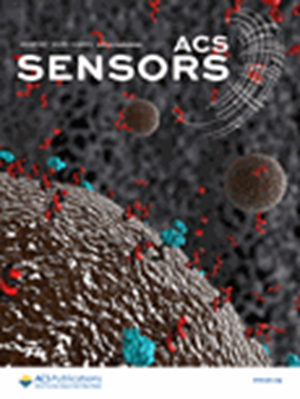Machine Learning-Integrated Electrochemical Sensors for Accurate and Continuous Free Chlorine Monitoring.
IF 9.1
1区 化学
Q1 CHEMISTRY, ANALYTICAL
引用次数: 0
Abstract
Accurate and continuous monitoring of free chlorine concentrations is essential for ensuring water safety in applications such as drinking water disinfection and food sanitation. Traditional methods for free chlorine detection, including colorimetry and photometry, often involve complex sample preparation and lack real-time monitoring capabilities. Electrochemical sensors provide a promising alternative; however, their long-term accuracy is affected by pH variations, electrode surface conditions, and impurity accumulation. In this study, we developed a machine learning-integrated electrochemical sensor using a glassy carbon (GC) electrode to measure current-potential relationships for free chlorine detection. An automated measurement system was constructed to acquire large datasets across varying pH values and free chlorine concentrations, thereby enabling robust model training. The effects of electrode surface conditions were mitigated by integrating voltammogram data obtained from a chlorine-free background solution (base solution) alongside the target voltammogram data into the machine learning model. The trained model was cross-validated and further tested on real samples collected from a vegetable washing factory. The free chlorine concentrations, measured by an iodine photometric sensor, were used as reference values. The calibration system significantly enhanced the estimation accuracy across all test conditions. In real-sample evaluations, the machine learning model successfully estimated free chlorine levels, despite variations in the base solution parameters and the presence of impurities. These results demonstrate the feasibility of integrating machine learning with electrochemical sensing for accurate and continuous monitoring of free chlorine.机器学习集成电化学传感器,用于准确和连续的游离氯监测。
准确和连续监测游离氯浓度对于确保饮用水消毒和食品卫生等应用中的水安全至关重要。传统的游离氯检测方法,包括比色法和光度法,通常涉及复杂的样品制备,缺乏实时监测能力。电化学传感器提供了一个很有前途的替代方案;然而,它们的长期准确性受到pH变化,电极表面条件和杂质积累的影响。在这项研究中,我们开发了一种机器学习集成的电化学传感器,使用玻璃碳(GC)电极来测量游离氯检测的电流-电位关系。构建了一个自动测量系统,以获取跨越不同pH值和游离氯浓度的大型数据集,从而实现稳健的模型训练。通过将从无氯背景溶液(碱溶液)获得的伏安数据与目标伏安数据整合到机器学习模型中,可以减轻电极表面条件的影响。对训练好的模型进行了交叉验证,并对从蔬菜洗涤厂收集的实际样品进行了进一步的测试。用碘光度传感器测定的游离氯浓度作为参考值。该校准系统显著提高了所有测试条件下的估计精度。在实际样品评估中,机器学习模型成功地估计了游离氯水平,尽管碱溶液参数和杂质的存在存在变化。这些结果证明了将机器学习与电化学传感相结合用于准确连续监测游离氯的可行性。
本文章由计算机程序翻译,如有差异,请以英文原文为准。
求助全文
约1分钟内获得全文
求助全文
来源期刊

ACS Sensors
Chemical Engineering-Bioengineering
CiteScore
14.50
自引率
3.40%
发文量
372
期刊介绍:
ACS Sensors is a peer-reviewed research journal that focuses on the dissemination of new and original knowledge in the field of sensor science, particularly those that selectively sense chemical or biological species or processes. The journal covers a broad range of topics, including but not limited to biosensors, chemical sensors, gas sensors, intracellular sensors, single molecule sensors, cell chips, and microfluidic devices. It aims to publish articles that address conceptual advances in sensing technology applicable to various types of analytes or application papers that report on the use of existing sensing concepts in new ways or for new analytes.
 求助内容:
求助内容: 应助结果提醒方式:
应助结果提醒方式:


